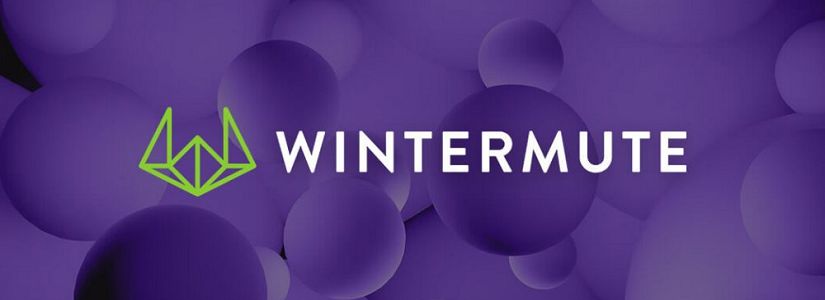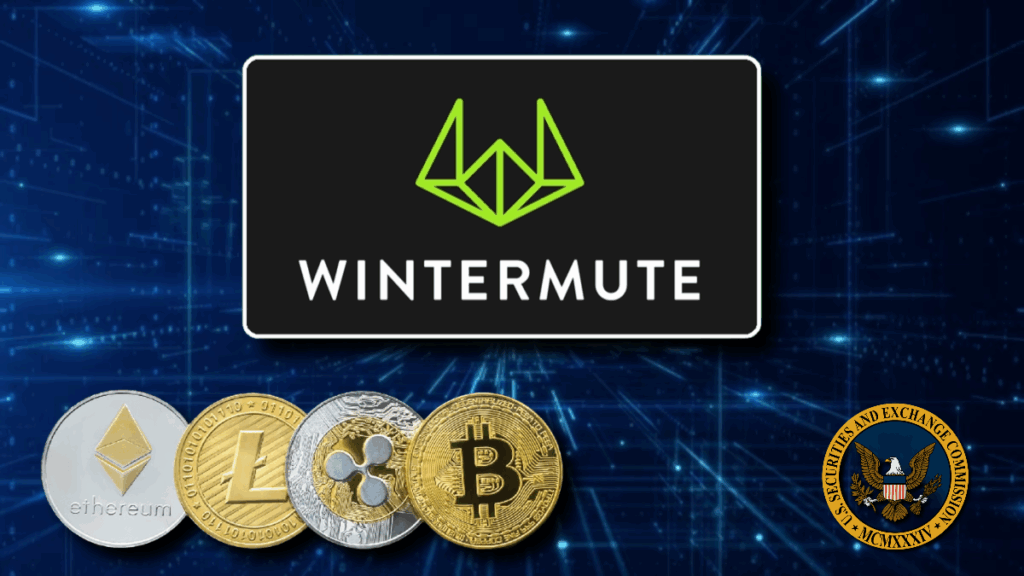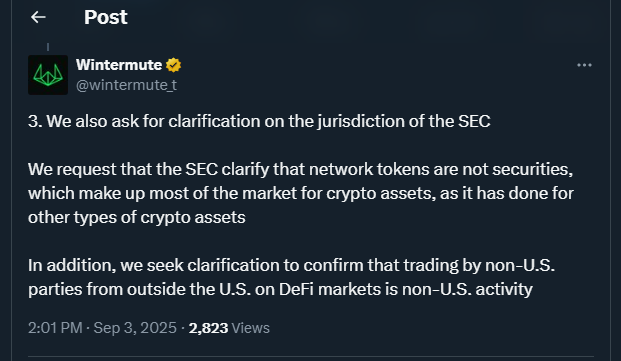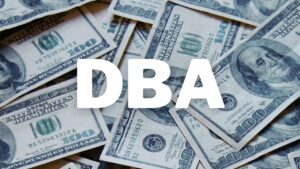TL;DR
- Wintermute has formally asked the U.S. Securities and Exchange Commission to clarify that network tokens such as Bitcoin and Ethereum should not be classified as securities.
- The company emphasized that clear guidance will help maintain U.S. competitiveness in digital asset markets, support decentralized finance growth, and prevent regulatory misclassification that could drive innovation and trading activities offshore.
- Their recommendations aim to protect investors while promoting blockchain development.
Wintermute, a leading digital asset trading firm and market maker, has urged the Securities and Exchange Commission to provide clear rules distinguishing network tokens from securities. In its formal submission to the SEC’s Crypto Task Force, Wintermute highlighted that network tokens are integral to the functioning of decentralized networks and therefore fundamentally different from traditional financial products. The firm emphasized that guidance should cover both established tokens and emerging digital assets, ensuring innovation continues across all levels of the market.
The firm specifically cited Bitcoin and Ethereum as examples of digital assets that should not be treated as securities. Wintermute warned that misclassifying these tokens could impose burdensome compliance obligations on U.S. traders, potentially limiting liquidity and pushing trading activity to foreign markets.
Network Tokens Function More Like Commodities Than Securities
Wintermute compared network tokens to commodities, collectibles, and real estate, arguing that they can be purchased for investment without being classified as securities. The firm noted that even if these assets are traded for profit or used in fundraising, their core function is technical, supporting decentralized protocols rather than serving as financial instruments. The submission further stressed that consistent regulations across jurisdictions would strengthen U.S. leadership in blockchain development and foster international investor confidence.
The company also welcomed recent SEC clarifications on stablecoins, memecoins, and staking, calling for the same level of regulatory clarity for network tokens. Clear rules, Wintermute argued, would foster innovation, encourage regulator dialogue, and maintain U.S. competitiveness in digital asset markets.
Supporting DeFi While Promoting Tokenized Securities
Wintermute’s submission further urged the SEC to ensure decentralized finance ecosystems can thrive alongside centralized trading platforms. The firm recommended that tokenized securities and DeFi activities, including trading, liquidity pooling, and lending, should not automatically fall under broker-dealer rules. Additional guidance would also help developers design compliant applications without compromising user experience or network efficiency.

The broader real-world asset (RWA) tokenization market is nearing $28 billion, with platforms like Galaxy Digital and Dinari pushing tokenized equities into mainstream adoption. Wintermute stressed that clear rules for network tokens would allow tokenization across various asset classes, enhancing investor choice and accelerating blockchain-based development in the United States.











